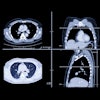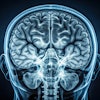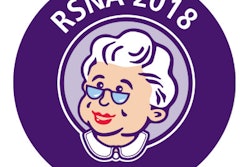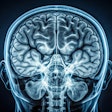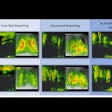Dear Artificial Intelligence Insider,
If you attended last week's RSNA 2018 meeting in Chicago, you already know that artificial intelligence (AI) was once again omnipresent, permeating both the scientific program and the exhibit halls.
Progress continues to be made in developing algorithms that show promise for helping radiologists be more accurate and more efficient. For example, an AI algorithm was found to accurately classify liver lesions on multiphase contrast-enhanced MRI exams. Importantly, the algorithm can also "explain" to radiologists how it arrived at its results. Learn all about it in this issue's Insider Exclusive, which you can access before our regular members.
In addition, a deep-learning algorithm can outperform radiologists in stratifying the risk of pulmonary nodules found on low-dose CT lung screening exams, potentially helping to find cancer earlier and reduce unnecessary workups, according to another talk at RSNA 2018. Click here for all of the details.
An AI algorithm can accurately predict whether thyroid nodules are malignant on ultrasound images, while another machine-learning algorithm was found to be particularly useful for less-experienced radiologists in diagnosing thyroid cancer, according to a pair of talks at the meeting.
In a video interview by AuntMinnie.com Editor-in-Chief Brian Casey, Dr. Keith Dreyer, PhD, and Dr. Bibb Allen Jr. provided an update on how the American College of Radiology Data Science Institute is working to make AI a clinical reality in radiology.
Yes, AI algorithms may yield impressive performance on carefully selected datasets. But they also need to be tested on real-world clinical cases before being deployed in clinical practice, according to another study. Click here to find out why.
As always, Dr. Paul Chang has some interesting perspectives on AI in radiology, and he shared them during a video interview in Chicago. In addition, Dr. Tessa Cook, PhD, discussed the importance of integrating AI technologies within a radiologist's normal workflow in another live video from RSNA 2018.
A pair of studies found that AI could thwart -- and also enable -- imaging cyberattacks. Click here to learn more. AI may also be able to help in the fight against gadolinium deposition.
In her opening address, RSNA 2018 President Dr. Vijay Rao told attendees that radiology can once again situate itself at the center of care by embracing emerging technologies such as AI. Click here for our coverage.
AI was omnipresent in the exhibit halls at McCormick Place. Consultant Michael J. Cannavo, known industry-wide as the PACSman, shared his thoughts on the latest commercial developments in a column for AuntMinnie.com.
In other AI-related presentations at RSNA 2018, a survey discovered that a majority of German medical students are aware of the discussion of AI in radiology and they are mostly unafraid of being replaced by AI. They're also optimistic that it will improve radiology, as well as medicine as a whole. Click here for our report.
Notably, a recent survey of Canadian medical students earlier this year yielded more cautionary results, with one-sixth of respondents indicating they would not consider radiology because of anxiety over the impact of AI.
Is there a story you'd like to see covered in the Artificial Intelligence Community? Please feel free to drop me a line.
Happy holidays from all of us at AuntMinnie.com!



